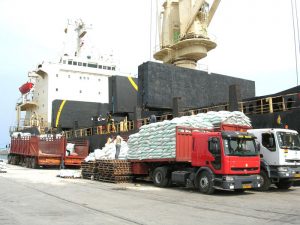Although the country has been producing oil and gas for over 10 years, access to finance still remains one of the major challenges impeding local companies’ from participating actively, Tullow Ghana has said.
Apart from lacking the financial muscle, indigenous firms also lack expertise and often struggle to meet conditions for tenders and environment, health and safety requirements, among others – thereby limited their participation in the hydrocarbons industry.
This was revealed by Tullow Ghana’s Director of External Affairs, Social Performance and Local Content, Cynthia Lumor, at a workshop on access to finance for indigenous companies in Accra.
“We have done many of these workshops, joint venture and permitting workshop; we have been doing closing the gaps in workshops where we build capacities on tender processes, but more and more we have been getting feedback that access to finance is one of the main stumbling blocks for a lot of the indigenous companies,” she noted.
However, to ensure prosperity for all, she said, there is a need for exploration companies, government and local firms to make concerted efforts at improving areas such as access to finance for local players, and capacity building.
This, she added, will create a win-win proposition for all, as it will help indigenous companies to not only participate actively, but also expand, create more jobs and generate more revenue for government; and ultimately bring about sustained development.
Access to finance for indigenous companies’ workshop
The workshop brought together Tullow’s local suppliers and seven universal banks: Fidelity; GCB; Cal; Standard Chartered; Barclays; Stanbic; and SG Ghana as part of efforts to help the suppliers get access to finance.
“This event is to help indigenous companies become a big part of the oil and gas industry. As the leading company, we believe that we must take the role of ensuring capacity building,” she indicated.
She explained that the event falls under Tullow’s local content and shared prosperity agenda, aimed at promoting local participation and sustainable development.
She added: “We believe very strongly that the country’s hydrocarbons should be a catalyst for growth; and when you look at the different components of that growth, supplier development is a big component because when the suppliers grow jobs are created, and there is more revenue for government in terms of taxes”.
Source: thebftonline.com






